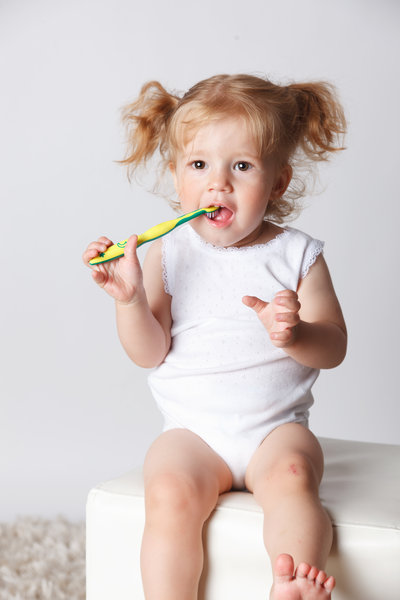Parents’ Role in Their Children’s Oral Health
Get Your Back-to-School Smile Ready!
August 11, 2017Are Braces Optional?
August 30, 2017
Your parental role in your child’s oral health care is pivotal. You pave the way for how your child will take care of their teeth now and into the future. Your active involvement can help prevent serious issues from occurring. Healthy teeth and gums allow your child to learn to speak more clearly, to chew their food properly, and to share their smiles with confidence. Learn what you should be doing now, and in the future, to support the health of your child’s teeth and mouth.
Children’s Oral Health
No matter the age, keeping the teeth clean is key to keeping them healthy. Taking preventative dentistry steps when your child is young will help them have the right habits down the line. Practicing good brushing, cleaning and oral hygiene habits will save time and money and will help children avoid extensive dental work in the future. Many babies will receive their first baby tooth between 4-7 months. Their baby teeth should all be in by age 3.
Most children will lose their first tooth by age 6 or 7 and will lose the last tooth around 12 or 13. However, they have their baby teeth for a good amount of years, so they must be taken care of. Dental caries (cavities) is one of the most prolific childhood diseases in the world. Cavities and problems with the gums can be avoided with the help of parents teaching good oral health habits.
What You Can Do
Teach by word and deed! Teach your child how to brush their teeth and why brushing the teeth is so important. Yes, a child will lose their baby teeth. However, they must be taken care of or odds are that their adult teeth won’t be taken care of. The American Dental Association (ADA) advises teaching your children to brush at least twice a day for 2 minutes. That’s one minute for both the upper and lower teeth.
Eating patterns and food choices play an important role in preventing, or promoting tooth decay. Limit sugar intake and make sure your child gets good vitamins to promote healthy and strong teeth. Take your child to see the dentist biannually for checkups and cleanings. This can alert you to dental or even orthodontic problems that are present. Keep a routine every day for brushing and flossing (after breakfast and before bed are good times). Children love routines, so be consistent! The more you help them, the quicker they can learn and make good choices for themselves.
For Each Age
The American Dental Association gives parents guidelines and tips for helping their children at every stage of life. Some of those tips include the following:
- Children 6 and younger – Children seek independence and love trying to learn new skills. They may want to brush by themselves, but many don’t have the motor skills to do it properly. Let children start brushing on their own, but help them finish off the job until they’ve learned how to clean all the teeth properly. Children also don’t monitor time as well as parents, so helping them brush for an appropriate amount of time can help keep their mouth healthy. Help them floss once a day after brushing.
- Ages 7-12 – Your child should know how to brush and floss by this age. The key is reminding them to do it and making sure they do. Many children know how to take care of themselves, they just may not see the importance quite yet. Encourage them to continue brushing and flossing each and every day.
- Ages 12-18 – This is a time when the most cavities and dental problems occur. Children may not have had many (or any) cavities until this time and may not realize just how important it is to brush and floss often. This is also a time when orthodontic care is the most popular and the teeth are the hardest to clean. As mentioned early, be mindful of your child’s oral health and make sure they are keeping up on it. The habits they have now are the habits they will likely have as adults.
Why It’s Important
Your child’s smile doesn’t come just from what they do. It also comes from what you do. Children learn everything they know from teachers, peers and especially their parents. Much like “monkey see, monkey do,” your child will follow what you do. If they see you brushing your teeth every morning and night, they are more likely to follow suit. One of the best things you can do as a parent when it comes to your child’s oral health is to be a great example yourself. You can get started today by scheduling your child’s exam and cleaning. Simply call Hardy Pediatric Dentistry and Orthodontics at (720) 887-6003 to make your appointment!